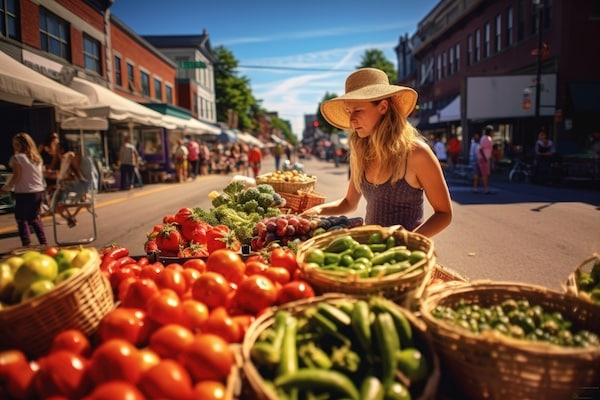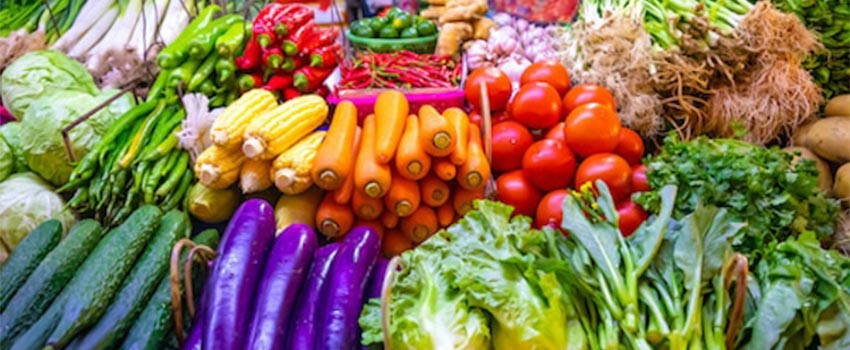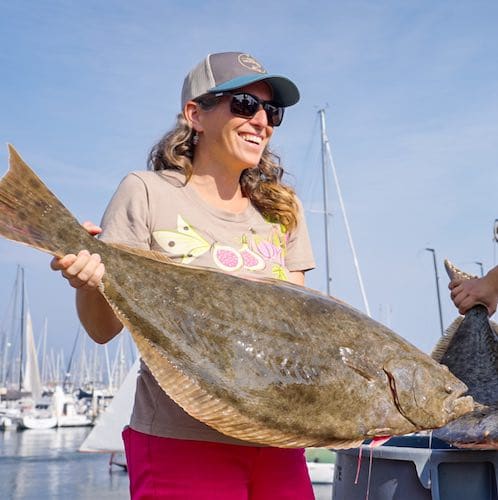After another trip around the sun, it’s time again to celebrate this beautiful planet we’re lucky enough to call home. But protecting our environment isn’t a once-a-year effort, it’s something we should try to practice every day – because even small changes can make a big impact.
One of the best ways to make a difference is to adopt some sustainable practices around food, whether it’s where we buy, how we cook, or what we eat. So in honor of Earth Day, this April 22, we’re giving you 22 practical ways you can prevent food waste and protect the planet in your own kitchen and beyond.
COOKING, EATING + STORING FOOD SUSTAINABLY

Choose Plant-Based Foods
Cut back on meat and choose plant-based foods instead. Meat not only costs more out of your pocket, but it ultimately costs more for the environment. Feeding animals and processing their meat requires much more energy, agricultural land, and greenhouse gas emissions than growing and distributing vegetables and legumes.

Opt for Glass Storage
Speaking of plastic, when it comes to storing your leftovers – go for glass! Whether it’s bowls, containers, or Tupperware, glass food storage isn’t just washable and environmentally friendly, but it’s actually a great insulator and keeps your food colder than plastic.

Ditch Plastic Packaging
If you’re a sucker for snacks like granola bars, cookies, or chips that come individually wrapped, try making your own at home! We love whipping up batches of our favorite treats and freezing them in resealable beeswax papers for yummy snacks to enjoy at home without the plastic packaging.

Save Those Scraps!
Instead of tossing out food scraps and items you’d typically discard, repurpose them for other uses. For example, you can turn stale bread into french toast, croutons, or breadcrumbs, save carrot and celery trimmings for homemade vegetable stock, or blitz some broccoli stems to make broccoli “rice”.

Let’s Compost!
For the scraps you’re not saving: compost, compost, compost! Forget the trash can and instead, keep a small composting bin in your kitchen where you can discard your food scraps. This allows your fruits, veggies, and other compostable items to naturally decompose in a way that benefits agriculture, enriches soil, conserves water, and helps reduce landfill emissions.

Throw it all in…
Not one for meal planning? Take an inventory of what’s in your fridge once or twice a week and whip up an easy “kitchen sink” meal to use up anything that’s about to go bad. Things like soups, stews, smoothies, casseroles, and even salads are all delicious ways to put those proteins and produce to good use before they turn into waste.

Meal Plan…
Plan out your meals for the week and make your grocery list accordingly; that way you only buy what you need and can cut back on potential waste. And if you want to take it a step further, with helpful apps like FoodKeeper App you can keep track of when you make your meals and how long your leftovers are good for so you can get to them in time.
KEEPING A SUSTAINABLE KITCHEN

Do You Really Need It?
Stocking your kitchen? Think quality over quantity. Stick to a few well-made, effective tools that will get the job done and keep your kitchen free of the excess appliances and unnecessary gadgets that you rarely use.

For a Heathy Environment
If you’ve got some bigger appliances to purchase, like a dishwasher or refrigerator, keep an eye out for that ENERGY STAR label. This means the product has EPA-recognized superior energy efficiency, saving you money and protecting the environment.

Sharing is Caring
For those items that you rarely use or that you’d like to get rid of in an effort to declutter, don’t throw them away; give them away. Offer the products to your friends or neighbors, or donate the items to a shelter or charity that accepts them. Skip the landfill because chances are someone else could use them.

Sustainable Cookware
When choosing your cookware, look for companies that use sustainable materials—like 360 Cookware, which makes stainless steel products using greener processes. Whenever possible, stick with more eco-friendly materials like cast iron and try to avoid non-stick cookware.
To receive 20% off 360 Cookware, use the Promo Code GOURMANDISE at checkout.

Reusable Paper Towels
Ditch the paper towels and napkins and opt for washable kitchen towels instead. We love keeping a few microfiber or bamboo kitchen towels and some sturdy napkins on hand for everything from wiping spills to sanitizing kitchen surfaces to drying off dishes, stoves, or countertops.

Think Outside the Plastic
We all have to do the dishes, right? Think outside the (plastic) box with zero-waste products like biodegradable sponges, copper scrubbers, and dishwashing soap blocks that forego the plastic.

First-In, First-Out
Use a first-in, first-out system for food storage. Move your older produce and dairy to the front of the fridge to ensure you can enjoy them before they spoil, and place your newer items in the back to wait their turn.
SUSTAINABLE WAYS TO SHOP + BUY
Buy local!
Shopping at your favorite farmers markets and community co-op comes with all kinds of benefits: you’ll support local farmers and in turn, foster the local economy, your spending will make more of an impact when you buy directly from the grower, and your food will be fresher and taste better.

Get only what you need…
When you’re shopping for fresh, seasonal produce, prevent spoilage and potential waste by buying enough for 3-4 days at a time rather than getting fruits and veggies for the whole week or buying in bulk.

Shop with the seasons!
Shop with the seasons! While out-of-season produce may require high-energy heating and lighting to grow in unnatural conditions, seasonal produce not only arrives ripe but typically travels less distances to grocery stores, using less fuel and creating less pollution. And it’s usually more affordable, too!

BYOB!
This one’s easy: BOYB! Bring your own reusable bags to the grocery store so you can stock up on all your goods without the unnecessary plastic and paper bags.

Sourcing Seafood
Seafood lover? Make sustainability a priority by being intentional about the fish you buy. The Environmental Defense Fund Seafood Selector is a great tool to help you determine more eco-friendly seafood choices that ultimately combat overfishing and protect our oceans.

Support Responsible Businesses
Help reduce food waste by supporting companies like Imperfect Foods. These companies sell discounted grocery items, usually with minor physical or packaging imperfections that don’t affect the quality or taste of the product, which would otherwise be discarded.
This page contains affiliate links. If you choose to purchase after clicking a link, The Gourmandise School may receive a commission at no extra cost to you.



Leave a Reply